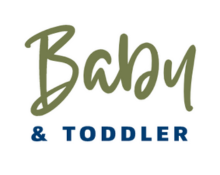
Before your breast milk fully comes in, usually around 2 to 5 days after birth, your body produces colostrum. Colostrum is the first milk your breasts produce, and it has many important benefits for your newborn. Here are some key points to keep in mind during this phase:
Colostrum: Colostrum is a concentrated and highly nutritious milk that is rich in antibodies, proteins, vitamins, and minerals. It serves as the perfect first food for your baby and provides essential nutrients for their growth and development. While the quantity of colostrum may be small, it is designed to meet your baby’s needs during the initial days.
Colostrum benefits: Colostrum has several important benefits for your baby. It helps protect against infections and provides vital immune support. It also has a laxative effect, helping your baby pass meconium (the first dark, sticky stool) and clear their digestive system.
Frequent nursing: In the days before your milk comes in, it’s important to nurse your baby frequently, usually on demand or at least 8 to 12 times in 24 hours. Frequent nursing stimulates milk production and ensures that your baby receives enough colostrum.
Effective latch: A proper latch is crucial for effective breastfeeding, especially when your milk supply is still transitioning. Ensure that your baby has a deep latch, with their mouth covering a significant portion of the areola, not just the nipple. This helps your baby effectively extract milk and stimulates milk production.
Skin-to-skin contact: Skin-to-skin contact with your baby is beneficial during this time. It helps stimulate breastfeeding hormones, regulates your baby’s temperature, and promotes bonding. Take advantage of opportunities for skin-to-skin contact, such as during feedings or when cuddling your baby.
Seek support: If you have any concerns or difficulties during this phase, don’t hesitate to seek support from a lactation consultant, midwife, or healthcare provider. They can provide guidance, offer tips on positioning and latch, and address any concerns you may have.
Remember, every mother and baby is unique, and it’s normal for the milk transition to vary. Your milk supply will gradually increase as your baby continues to nurse frequently and effectively. Trust in your body’s ability to produce milk and enjoy the special bonding experience with your baby during this important phase of breastfeeding.
